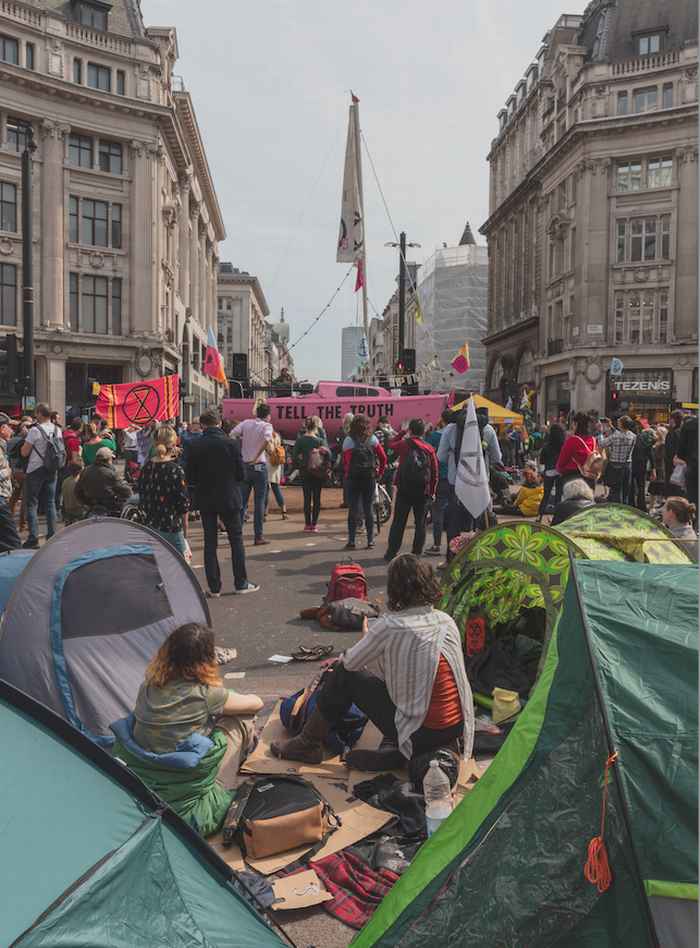Climate change and civil disobedience: breaking the law to save the planet
17 January 2024

Civil disobedience has a long history of use as a protest tactic around the world, but climate justice civil disobedience differs from earlier campaigns in important ways. It is broader in scope than any previous campaign, with a transnational and intergenerational character that sets it apart from previous movements. Schaafsma argues that such civil disobedience is not just morally permissible in face of the existential challenges we will face due to climate change, but also that it is, for those who are able to do so at relatively little cost to themselves, actually a personal responsibility.
No more ‘politics as usual’
Schaafsma: ‘Climate Action Tracker – an organisation which follows the progress of individual countries in meeting the Paris Agreement’s stated ambition of preventing warming of more than 2 degrees – found that no country has made sufficient progress towards that goal. It is clear that ‘politics as usual’ is not working when it comes to tackling the massive threat of climate change.’
In the United States, for example, fossil fuel interests have had a disproportionate influence on public policy and have unduly influenced the democratic process by means of well-funded political lobbying seeking to directly influence political decision-makers and to repress and undermine scientific findings. Whereas fossil fuel companies spent more than a billion dollars between 2007 and 2017 in supporting political candidates who shared – or were willing to espouse – their views, not one environmental group was even among the top 20 biggest lobbying groups in Washington. Using civil disobedience to counteract that malign influence is therefore a legitimate way of forcing legislators to make climate justice part of the process of public deliberation, according to Schaafsma.
Future generations
One of the biggest stumbling blocks when trying to get people to act on climate change is that most of the severe problems it will cause are still decades away. It is future generations who will bear the brunt of the irreversible changes brought about by our actions now. The irreversibility of the damage that climate change will cause is a way for children, or those acting on children’s behalf, to justify use of civil disobedience now, to help ensure the continued functioning of our democratic institutions in the future.
Schaafsma: ‘My findings indicate there are various grounds for a broad-based campaign of civil disobedience to bring about more urgent action to tackle the climate crisis. Not everyone will agree with this, but I would like those who don’t - those committed to less radical action - to challenge my conclusions and thereby help expedite the public deliberative process about the most appropriate response to climate change. We cannot afford to wait any longer.’
Defence details
Gerrit Schaafsma: Contestation in the Anthropocene. Climate change and civil disobedience. Supervisors Prof. B. Roessler and Prof. R. Celikates.
Time and location
Schaafsma’s PhD defence ceremony will take place on Thursday, 25 January, at 16.00, in the Agnietenkapel.